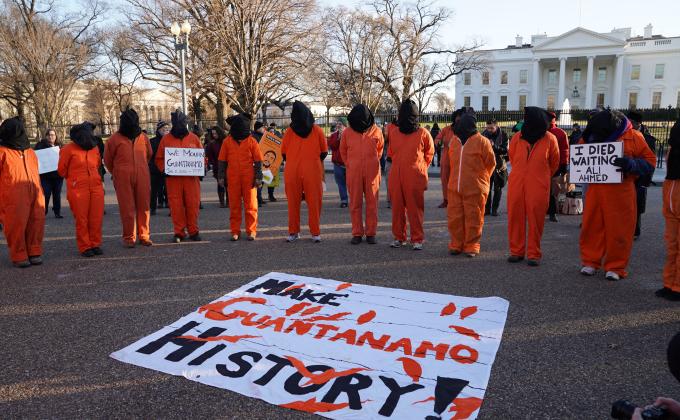From the very beginning of the pandemic, government officials in the UK, Germany, and Australia voiced concerns that extreme right individuals would use the lockdown to spread their propaganda to audiences who were sitting at home, glued to their phones and laptops trying to make sense of what was going on around them. And even more worryingly, the difficult circumstances brought on by government responses to the pandemic would play right into the hands of these individuals as they could easily spin the current situation in ways that lend credibility to their narrative. Or as Europol’s 2021 TE-SAT report put it: “Right-wing extremists exploited COVID-19 to support their narratives of accelerationism and conspiracy theories featuring anti-Semitism, and anti-immigration and anti-Islam rhetoric.” Predictably, it wasn’t long before academics and researchers began to weigh in. Some provided empirical evidence, showing that there had indeed been increases in online activity among the far-right. Others were more speculative, simply predicting “renewed levels of far-right activism” or claiming that “seizing upon the uncertainty and turmoil the global pandemic has caused, profiting from the uncertainty and anxiety brought on by the public health threat and the massive job losses”. Yet others were more sensationalist in pointing out a Covid-19-related bioterrorist threat: extreme right actors might catch Covid-19 and would then go out to infect law enforcement personnel on purpose. (As far as is known to the authors, nothing of the kind has happened since these warnings were sounded.) But whatever the veracity of the claims or the position of the person making them, the gist was always the same: the far-right would be opposed to Covid-19 restrictions put in place by governments. As we will argue in this Perspective, this assertion is certainly not without its merit, but it is also one-sided. Given that we are now almost a year and a half into the pandemic, a more differentiated analysis is needed. An ICCT report from June 2020 constituted a step in the right direction by demonstrating that far-right groups did not all respond to the pandemic in the same way, and also that their behaviour deviated from what had been predicted in many commentaries. In this Perspective, we make another contribution to a more nuanced understanding of the far-right’s positioning in the Covid-19 era by demonstrating that far-right responses have been more varied than is often suggested. We highlight the diversity of far-right responses to Covid-19 that has been overlooked in the standard narrative outlined above. It is important to be nuanced about this, because these responses are reflections of the motivations of these movements and their supporters. Not having differentiated analyses may lead to the application of one-size-fits-all approaches when trying to counter the far-right’s influence, and that will obviously doom us to failure. When we refer to the ‘far-right’, we are building upon a field of study that distinguishes between the ‘extreme right’ and the ‘radical right’. The extreme right constitutes those who are anti-democratic and pro-violence, whereas the radical right constitutes those who are pro-democratic and anti-violence in order to achieve their goals. Ideologically, both the extreme right and radical right share principles of nativism (nationalism combined with xenophobia), ethnicity as a determinant of belonging to the national community, and an authoritarian stance towards law and order. Far-right is an umbrella term that includes the extreme right and radical right, and thus we use far-right in this Perspective to highlight a broad spectrum of actors, ranging from fringe groups to heads of government. By drawing on examples from Western as well as Latin American and Asian countries, we outline three different – and even conflicting – far-right responses to the pandemic. We discuss some implications in the concluding section.
Response 1: Opposing restrictions
Some far-right groups are clearly trying, in line with the concerns summed up in the previous section, to exploit Covid-19 restrictions to gain support. They do so by framing these restrictions as attempts by an elite to control the population and profit off the vaccines. In this reading of events, governments are using (or even staged) the pandemic to establish a dictatorial regime and destroy normal people’s way of life. Furthermore, many on the far-right blame the pandemic on their preferred scapegoats, i.e. migrants, who are spreading the disease, and Jews, who are behind-the-scenes organisers of the pandemic. Probably the two most prominent cases of countries where extreme right individuals are exploiting this narrative are the US and Germany, where extreme right groups have managed to dominate protest movements against Covid-19 restrictions. In the US, groups like the Proud Boys are spreading conspiracy theories and disinformation regarding Covid-19 and the government’s response. Moreover, they have been the driving forces behind many demonstrations against lockdown measures in 2020. The German extreme right have also been successful in their attempts to hijack the protest movement that came out against Covid-19 restrictions. The most dramatic illustration of this was the storming of the Government Reichstag building in October 2020, when individuals from the extreme right broke through a line of police officers and entered Germany’s parliamentary building. Consequently, the German security service is monitoring parts of the protest movement because these are organised by the extreme right. In other countries, far-right groups may have been less successful and less dominant, but their response to the pandemic has been similar. The counter-terrorism police chiefs whose concerns were referred to above were right: the available evidence indeed suggests that extreme right individuals in the UK and Australia are opposing Covid-19 restrictions to push their narratives and gain influence in the wider protest movement that has come together during the pandemic. Another example is Belgium, where Dries Van Langenhove, leader of the extreme right group Schild & Vrienden (Shield & Friends), spread conspiracy theories about Covid-19 restrictions in a recent YouTube video. He compared them to the Nazi occupation and asserted that they were part of a plan to establish an Orwellian regime that could fully control the population. Van Langenhove also believes it is a matter of time before the government will declare unwelcome political views, such as his own, to be symptoms of a disease. People holding such views, so Van Langenhove fears, will then be subjected to restrictions on their freedoms in the way unvaccinated citizens are now. But it isn’t just the extreme right fringe that is opposing Covid-19 restrictions in order to promote their agenda. In Brazil, the response from far-right leader Jair Bolsonaro is quite similar to the former American president. Dubbed the ‘Trump of the Tropics’, Bolsonaro continues to describe the coronavirus as a ‘mild flu’ that can be treated with a malaria drug rather than a vaccine—despite Bolsonaro testing positive for Covid-19 in 2020. Brazil’s handling of the pandemic has been catastrophic, as a result of Bolsonaro having ‘systematically downplayed the risks and blocked any centrally coordinated response’. The political ramifications of Covid-19 led to Bolsonaro facing declining support with the lack of any established political party behind him (instead he is backed by a loose coalition of Christian evangelical groups, military supporters, entrepreneurs, and the agribusiness sector). More recently, the president faced a parliamentary investigative committee regarding his handling of the pandemic. The televised inquiry found that Bolsonaro’s administration committed ‘crimes against life’, including turning down offers to purchase vaccines and failing to respond to depleted oxygen supplies. What these examples make clear is that there are certainly grounds for the concern that the far-right is trying to gain support through its opposition to Covid-19 restrictions. There are also instances, however, where this is much less straightforward.
Response 2: Ambivalence
There are far-right groups in the Netherlands whose response to the pandemic is similar, yet the Dutch far-right is not unanimous in its rejection of Covid-19 restrictions. Some groups prefer to show that they act in a socially responsible manner and appear more apprehensive about voicing direct criticism. An interesting example concerns the Dutch-Belgian far-right group Voorpost (Outpost), which is striving for a reunification of the Netherlands and Flanders, and which also sports a department in South Africa. In a post about a gathering in the city of Utrecht, the Dutch branch of Voorpost showed that the attending members actually went out of their way to respect the social distancing rule. Similarly, in a post announcing another event, the group explicitly called on its members to respect Covid-19 restrictions and to maintain social distancing. Additionally, the official Voorpost website contains no articles criticising Covid-19 restrictions. Whether this reflects what they truly believe remains to be seen, as Voorpost’s Flemish branch has voiced some sharp criticism against Covid-19 restrictions and several Voorpost members have attended demonstrations against restrictions. But regardless of how sincere they are, the public utterances of Voorpost’s Dutch branch have been much more moderate compared to those of hard-line opponents. Another interesting example of an extreme right group that shows its willingness to respect Covid-19 restrictions and is less vocal in its condemnation is the Dutch branch of the Europe-wide PEGIDA (Patriotic Europeans Against the Islamisation of the Occident) movement. The group is critical of restrictions, but mostly because of the inconsistent way in which they are being applied. In April 2020, PEGIDA members announced they were going to organise a demonstration outside of a mosque in the town of Zwolle because the people there supposedly did not social distance. When the city council banned the demonstration, PEGIDA claimed it was never planning on actually gathering around the mosque, as that would be irresponsible given the circumstances of the pandemic. This way, PEGIDA, like Voorpost, is taking a less confrontational stance on Covid-19 restrictions. That such mixed responses are not limited to the Netherlands is clear from the positions of the Nordic Resistance Movement (NRM), a pan-Nordic neo-Nazi organisation. The NRM is critical of Covid-19 restrictions, but does not wholly adhere to the frame pushed by actors who fall under the first response highlighted in the previous section. In fact, NRM Swedish branch leader Simon Lindberg said as much in an article published on the NRM website shortly after the beginning of the pandemic: “I won’t spread the belief that the establishment and media are exaggerating the risks in an attempt to scare the people into submission, or the idea that they’re covering up and toning down the risks in order to avoid causing panic.” He also urged members of the movement to respect the restrictions: “Surely you’re not taking any risks and spreading this virus to other people? Instead, take the opportunity to spend some quality time with the family, catch up with our podcasts and get on with those push-ups you’ve been thinking of doing.” In a similar vein, Lindberg defended the cancellation of an NRM rally by pointing out that the organisation has “a big responsibility to our members and sympathisers and their families. It would be extremely irresponsible of us if we held our demonstration and simultaneously contaminated hundreds of nationalist-minded people with the virus.” Similarly, in a ‘banner action’ near the Danish town of Aarhus, NRM members made it clear where their priorities lie: “A virus can kill a huge number of people, but mass immigration is a real genocide and is still the greatest threat to our folk.”
Response 3: Enforcing government policies
When Covid-19 cases began to rise in India, the far-right quickly scapegoated Muslims in the country as ‘superspreaders’ who intentionally exploit the virus as a bio-political tool against the Hindu majority. Social media posts containing disinformation went viral with trending hashtags such as #CoronaJihad, spreading conspiracy theories that Muslims were seeking to spread Covid-19 as an act of ‘Islamisation’ or ‘corona terrorism’. In this regard, their response to the pandemic still showed some similarities to that of extreme right groups in Germany and the US. It is not uncommon for the extreme right to blame Muslims or immigrants for the spread of the virus. The major difference between Indian and most Western far-right groups became clear when India went into lockdown. In a remarkable contrast to the extreme right groups discussed above, the Indian extreme right weaponised mask wearing, social distancing, and respecting curfew hours in order to target Muslims failing to adhere to these regulations. Members of the extreme right paramilitary organisation Rashtriya Swayamsevak Sangh (RSS, or National Volunteer Organisation) began patrolling the streets and manning checkpoints to enforce lockdown rules, thus siding with the police, who were actively enforcing lockdown measures through violent, and sometimes brutal, means. In a less violent but equally salient part of its response to Covid-19, the RSS aligned with the government’s agenda. In particular, the group launched a campaign promoting mass vaccination across the country, attempting to dispel rumours about side effects and effectiveness. This latter aspect of a pro-vaccination mentality among the Indian extreme right is significant; India’s pride in its scientific profile is connected to its political economy as a major hub of pharmaceutical and medical supplies production. As groups like the RSS are promoting a narrative about India’s grandiosity as a nation, it only makes sense that they would take such a position vis-à-vis science regarding the pandemic. The far-right Philippine president Rodrigo Duterte’s line on the handling of the pandemic has many similarities to that of the Indian far-right; he too, went all in on enforcing measures. This includes televised addresses in which he, using his trademark crudeness, threatens citizens who refuse to get vaccinated that they will face imprisonment, be vaccinated by force, or be injected with an anti-parasite drug often administrated to animals. He even went a step further when he refused to obey court orders on how to manage the pandemic concerning testing and quarantine protocols, dismissing potential human rights violations. Conspicuously absent in his policies are claims that Covid-19 is ‘just a flu’ or that death rates are an exaggeration, nor does he ever appeal to concepts like individual liberty to argue against far-reaching measures to stop the pandemic.
Conclusion
In this Perspective, we aim the show the diversity of global far-right responses to the Covid-19 pandemic. While some groups and individuals have seized upon the opportunity to protest against government restrictions, such as in the case of US, Germany, UK, Australia, and Belgium, on the other end of the spectrum, the extreme right in India have actively taken steps to enforce government mandates on lockdowns, mask wearing, and social distancing. To add further nuance, other reactions have been ambivalent, for example in the Netherlands and Scandinavia, where various extreme right groups are divided on adhering to or rejecting government measures. Even amongst far-right leaders, responses are mixed. In Brazil, which has been one of the worst-hit countries of cases, Bolsonaro has dismissed the severity (or even legitimacy) of the virus, to the extent of his administration having committed ‘crimes against life’. On the other hand, Modi and Duterte have taken proactive steps to halt the spread of Covid-19, albeit to differing degrees and sometimes at the expense of democratic backsliding. But these are just the facts. The question is: what are we to make of them? First, they show that the far-right is not united, especially when viewed as a global phenomenon, as we highlight in this Perspective. The need for categorisation is understandable and legitimate, but this should not lead us to believe that there is a singular far-right response to major political and social events. More differentiated analyses are necessary, as is caution in making blanket statements about the far-right as opposed to Covid-19 restrictions in general. Second, and related to the previous point, political and social events, even those as seismic as the pandemic, occur in a political context that doesn’t change overnight. Going by what we have illustrated in the previous sections, far-right actors’ responses to Covid-19 are partially determined by the way they relate to those in power. In countries where far-right actors are challengers to those in power, they will criticise government policies. In most cases, this will translate into a stance that resembles response we described in the section ‘opposing restrictions’. In countries where the far-right is more closely tied to those in power, or where they are actually in power, they will side with the government’s attempts to fight the pandemic. Moreover, the far-right in many countries has its peculiarities that the pandemic has not erased. For instance, the specific narrative of the Indian far-right, which stresses India’s reputation in science, clearly has a bearing on its response. Similarly, the far-right scene in the Netherlands has long been fragmented, so against that background it should not be surprising that Dutch far-right groups are not all united regarding how to respond to the pandemic. In many ways, the pandemic has been a life-changing event. This makes it tempting to believe that it has a uniform impact on a phenomenon like the far-right. The reality, however, is much more nuanced. This Perspective brings out some of that complexity, but should also serve as a more general warning that differentiated analyses are always necessary to situate the diversity of a phenomenon we commonly assume to be homogeneous.
Photocredit: Mykola Tys/Shutterstock









